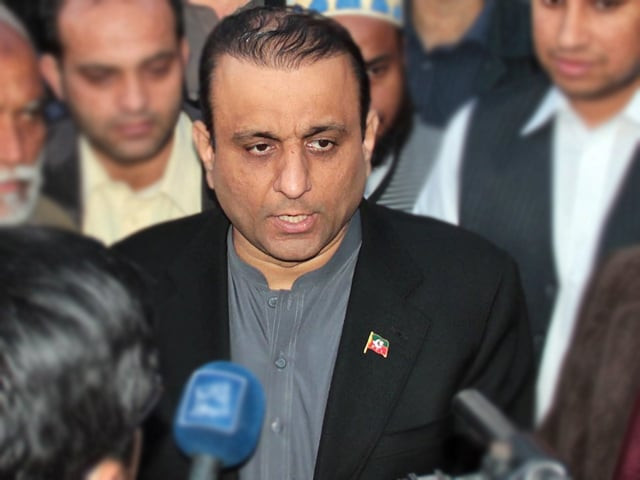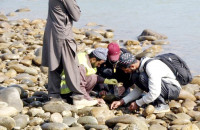Kazakhstan to introduce direct flights, signs trade pacts
Aleem Khan stresses relaxed visa conditions as 13th IGC concludes with agreements on trade, transport, culture

Pakistan and Kazakhstan are set to deepen their bilateral relationship following high-level talks and the successful conclusion of the 13th Session of the Pakistan-Kazakhstan Joint Intergovernmental Commission (IGC) in Islamabad on Tuesday.
Federal Minister for Communications Abdul Aleem Khan and Kazakhstan's Minister for Transport Marat Karabayev met to explore opportunities to expand cooperation, particularly in trade and connectivity. Khan stressed the need for direct flights from Lahore, Islamabad, and Karachi to Kazakhstan and called for relaxed visa conditions for traders and tourists. He also highlighted Pakistan's focus on improving land connectivity through Afghanistan to strengthen trade links with Central Asia for which the current visit of Kazakhstan's Minister of Transport is significant.
Karabayev highlighted Kazakhstan's interest in boosting land connectivity with Pakistan and praised the quality of bilateral meetings held during his visit. He was accompanied by a high-level delegation, including senior officials from Kazakhstan's trade, transport, water resources, and energy ministries.
Karabayev also invited Khan to visit Kazakhstan, which the communications minister accepted, marking another step towards enhancing ties.
Separately, the IGC session, co-chaired by Economic Affairs Minister Ahad Cheema and Minister Karabayev, concluded with several key agreements. These include the Roadmap for Trade and Economic Cooperation and a Memorandum of Understanding (MoU) on Electronic Trade, aimed at streamlining trade flows and driving economic integration.
Both sides reaffirmed their commitment to regional connectivity through multimodal trade corridors, including the Kazakhstan-Turkmenistan-Afghanistan-Pakistan and Kazakhstan-Uzbekistan-Afghanistan-Pakistan routes. A new corridor linking Jebel Ali (UAE) to Almaty via Pakistan was hailed as a regional integration milestone.
Agreements were also reached in agriculture, finance, education, tourism, and technology. Cultural initiatives include the naming of streets in Islamabad and Astana after Muhammad Ali Jinnah and Abai Qunanbaiuly. MoUs in digital innovation were signed between NADRA and Kazakhstan's IT agency, and between Astana Hub and Ignite.
The IGC session laid the foundation for long-term cooperation, with both countries agreeing to hold the 14th session in Astana in 2026.























COMMENTS
Comments are moderated and generally will be posted if they are on-topic and not abusive.
For more information, please see our Comments FAQ